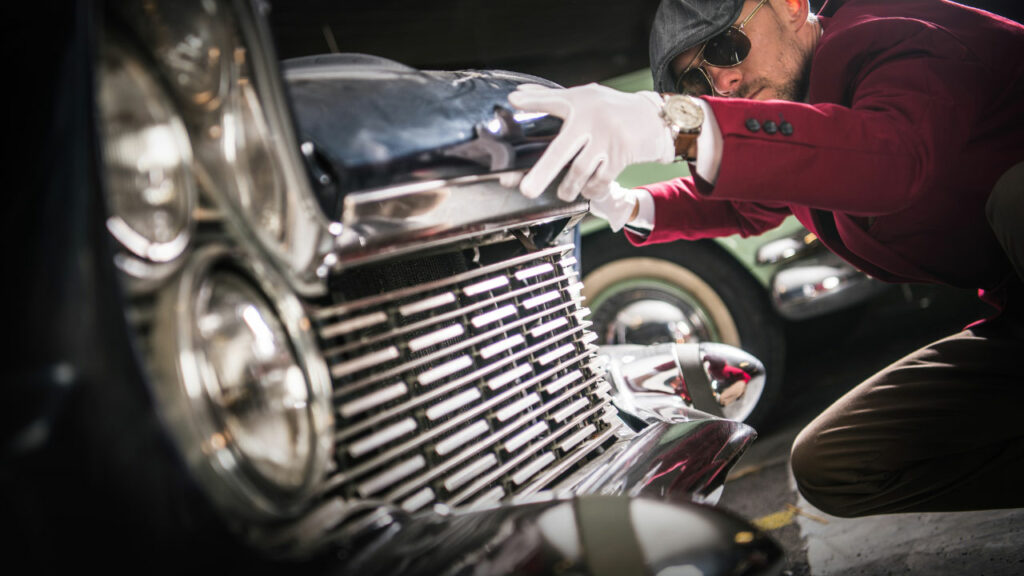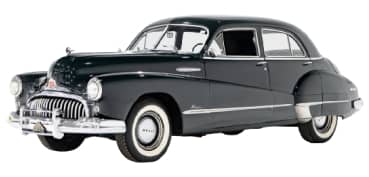Determining the value of a classic car is crucial for both buyers and sellers. The Vehicle Identification Number (VIN) is a valuable tool that can provide valuable information about a classic car, including its history and estimated value.
In this comprehensive guide, we will explore the process of finding classic car values by VIN number, equipping enthusiasts and collectors with the knowledge needed to make informed decisions.
What does a classic car value mean?
Classic car value refers to the estimated worth or monetary value of a vintage or classic car. These values are determined based on various factors, including the car’s make, model, year of production, condition, rarity, historical significance, and market demand.
Classic car values are essential for collectors, buyers, sellers, and insurance companies as they provide a benchmark for assessing the worth of these unique vehicles. Factors such as originality, authenticity, provenance, and any notable modifications or restorations also play a role in determining a classic car’s value.
Classic car values can fluctuate over time due to market trends, supply and demand dynamics, and the overall condition of similar vehicles in the market. Accurately determining the value of a classic car is crucial for making informed decisions when buying, selling, insuring, or appraising these vintage cars.
How to find classic car values by VIN?
Evaluating a classic car by VIN can provide valuable insights into the vehicle’s history and condition. While the VIN itself does not directly reveal the car’s value, it serves as a crucial starting point for evaluating its authenticity, originality, and potential worth. Here are the steps to evaluate a classic car using its VIN:
- Decode the VIN: You can freely decode the classic car VIN to get information about the vehicle’s specifications and other basic components. This information can reveal details about the car’s manufacturer, model year, assembly plant, and other specifications.
- Research the VIN’s history: Conduct a VIN history check to gather information about the car’s history, including any reported accidents, title checks, auction and sales listing records, and more. This helps identify any red flags or issues that may affect the car’s value.
- Verify authenticity: Cross-reference the VIN with the car’s accompanying documentation, such as the title, registration, and maintenance records. Ensure that the VIN matches across all documents, confirming the vehicle’s authenticity.
- Assess originality: Research the specific model’s original features, options, and configurations. Compare this information with the VIN to determine if the car retains its original components, such as the engine, transmission, and body panels. Originality often enhances a classic car’s value.
- Inspect the vehicle: Conduct a thorough physical inspection of the classic car, looking for signs of rust, body damage, wear, or any non-original modifications. Assess the overall condition of the interior, exterior, mechanical components, and accessories.
- Consider market factors: Evaluate the current market demand for the specific make and model of the classic car. Factors such as rarity, popularity, and trends within the collector car market can influence its value.
Factors Influencing Classic car values
Classic car values are influenced by a variety of factors that help determine their worth in the market. These factors contribute to the uniqueness, desirability, and historical significance of the vehicle. Understanding these key elements is crucial for accurately assessing the value of a classic car. Let’s explore the factors that play a role in determining classic car values:
- Rarity: The scarcity or limited production of a particular classic car model contributes to its value. Rare vehicles are often more desirable among collectors, as they are harder to find and possess a higher level of exclusivity.
- Historical Significance: Classic cars that have historical importance, such as being associated with significant events, famous individuals, or iconic eras, tend to have higher values. Their historical relevance adds to their allure and makes them sought after by enthusiasts.
- Brand and Model: The brand and model of a classic car can greatly impact its value. Vehicles produced by prestigious brands with a strong reputation for quality and craftsmanship often command higher prices. Similarly, certain models that are considered iconic or groundbreaking within the automotive industry hold greater value.
- Condition: The overall condition of a classic car is a critical factor in determining its value. Vehicles in pristine, original, or meticulously restored condition tend to have higher values compared to those requiring extensive repairs or modifications.
- Authenticity: The originality and authenticity of a classic car, including matching numbers, factory specifications, and genuine components, contribute to its value. Vehicles that have retained their original features and have not undergone significant alterations or modifications hold a higher level of authenticity.
- Demand and Popularity: The level of demand and popularity among collectors and enthusiasts significantly affects classic car values. Vehicles that are in high demand, either due to their aesthetic appeal, performance, or historical significance, tend to have higher values.
- Market Trends: The ever-changing market dynamics, including shifts in preferences, trends, and economic factors, can influence classic car values. Supply and demand imbalances, fluctuations in the economy, and changes in buyer preferences can impact the overall value of classic cars.
- Documentation and Provenance: Having thorough documentation, including service records, ownership history, and any significant historical documentation, adds credibility and value to a classic car. Provenance, which refers to the vehicle’s documented history and its association with notable individuals or events, can elevate its value.
By considering these factors collectively, enthusiasts, collectors, and industry experts can assess the value of a classic car more accurately. It is important to note that classic car values can vary over time, reflecting the ever-evolving nature of the market and the factors that influence it.
Conclusion
Finding classic car values by VIN number requires a combination of research, analysis, and market knowledge. By understanding the significance of VIN numbers, decoding them accurately, utilizing various resources for research, considering market factors, and evaluating a classic car’s condition and authenticity, enthusiasts can make informed decisions when it comes to buying, selling, or insuring classic vehicles.
Whether you’re a collector, enthusiast, or involved in the classic car market, the knowledge gained from this comprehensive guide will empower you to navigate the world of classic car values with confidence.
If you need to gather details on any vehicle by VIN, you can use the Classic Decoder website or application, which provides services for classic VIN decoding, vehicle history reports and more, to make it easy for you to obtain all the information you need to determine the value of a classic car.

